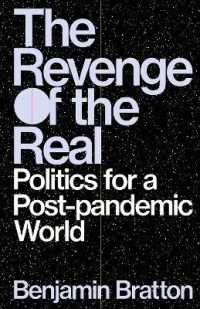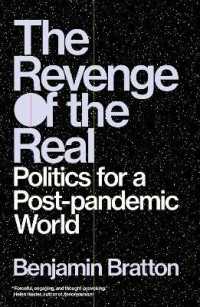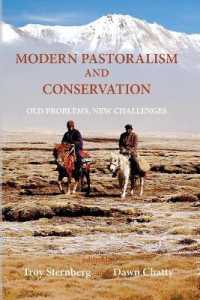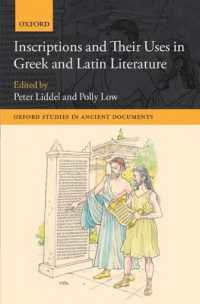- ホーム
- > 洋書
- > 英文書
- > Philosophy
Full Description
Sensory experience seems to be the basis of our knowledge and conception of mind-independent things. The puzzle is to understand how that can be: even if the things we experience (apples, tables, trees, etc), are mind-independent how does our sensory experience of them enable us to conceive of them as mind-independent? George Berkeley thought that sensory experience can only provide us with the conception of mind-dependent things, things which cannot exist when they aren't being perceived.
It's easy to dismiss Berkeley's conclusion but harder to see how to avoid it. In this book, John Campbell and Quassim Cassam propose very different solutions to Berkeley's Puzzle. For Campbell, sensory experience can be the basis of our knowledge of mind-independent things because it is a relation, more primitive than thought, between the perceiver and high-level objects and properties in the mind-independent world. Cassam opposes this 'relationalist' solution to the Puzzle and defends a 'representationalist' solution: sensory experience can give us the conception of mind-independent things because it represents its objects as mind-independent, but does so without presupposing concepts of mind-independent things.
This book is written in the form of a debate between two rival approaches to understanding the relationship between concepts and sensory experience. Although Berkeley's Puzzle frames the debate, the questions addressed by Campbell and Cassam aren't just of historical interest. They are among the most fundamental questions in philosophy.
Contents
Preface
1: John Campbell: The Historical Background
2: John Campbell: A Straightforward Solution to Berkeley's Puzzle
3: John Campbell: Experiencing Objects as Mind-Independent
4: John Campbell: The Role of Sensory Experience in Propositional Knowledge
5: Quassim Cassam: Berkeley's Puzzle
6: Quassim Cassam: Experientialism
7: Quassim Cassam: The Relational View of Experience
8: Quassim Cassam: Representationalism
Campbell's Epilogue
Cassam's Epilogue
References
Index








